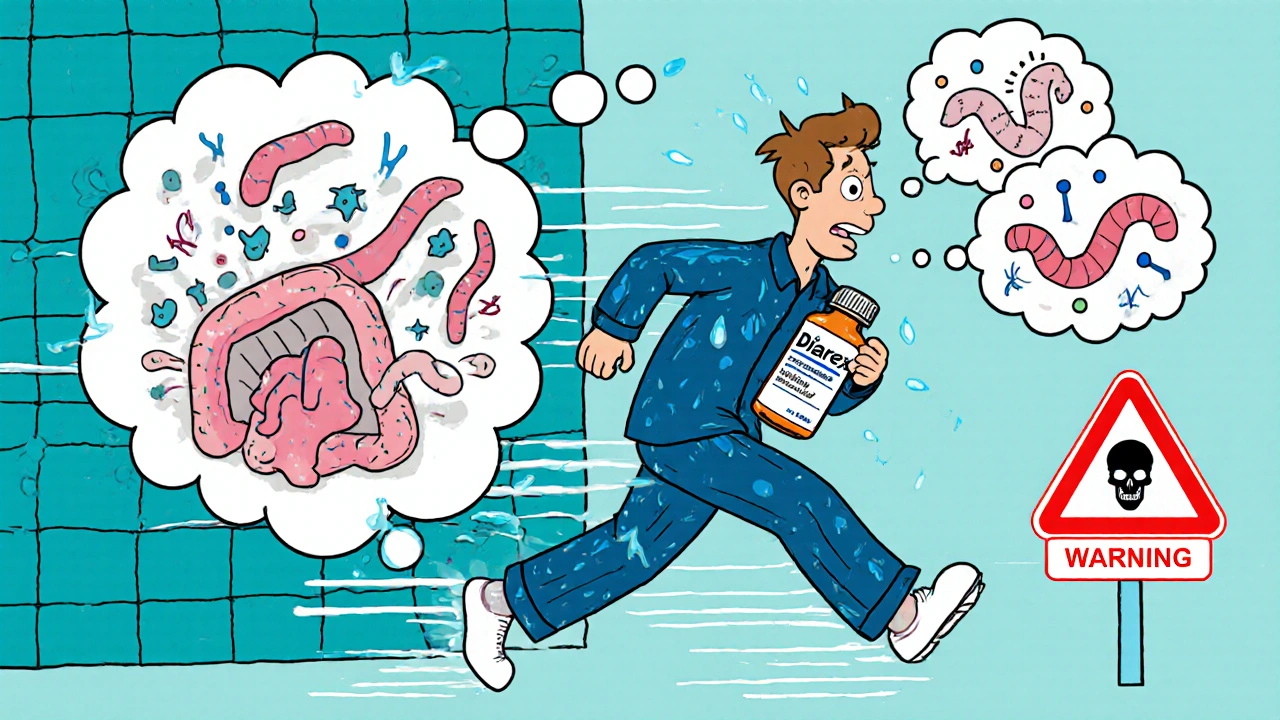Diarrhea Treatment: Effective Options, Common Causes, and What Actually Works
When you’re dealing with diarrhea treatment, the process of managing frequent loose stools to restore fluid balance and stop gut irritation. Also known as stomach bug management, it’s not just about stopping the runs—it’s about keeping your body from shutting down. Most cases clear up on their own, but if you’re losing fluids faster than you can replace them, that’s when things get dangerous.
Dehydration is the real enemy here. It’s not just feeling thirsty—it’s dizziness, dry mouth, dark urine, or even confusion. Kids and older adults are at highest risk, but anyone can crash fast. The first rule of oral rehydration, a simple, proven method to replace lost fluids and electrolytes using a balanced solution of water, salt, and sugar. Also known as ORS therapy, it beats fancy drinks or juice every time. A pinch of salt and a spoon of sugar in clean water works in a pinch. Ready-made packets are cheap, shelf-stable, and sold everywhere.
Then there’s loperamide, an over-the-counter drug that slows gut movement to reduce stool frequency. Also known as Imodium, it can give you relief in hours—but don’t use it if you have a fever or bloody stool. That could mean an infection like salmonella or E. coli, and slowing things down traps the bad bugs inside. Same goes for antibiotics—most diarrhea doesn’t need them. Your body clears most viruses on its own.
Probiotics are another tool. Not magic, but science backs them. Strains like Lactobacillus rhamnosus GG and Saccharomyces boulardii help restore good gut bacteria after a bug. They won’t stop diarrhea overnight, but they can shorten it by a day or two. You’ll find them in capsules, powders, or even some yogurts. Skip the sugary stuff—look for live cultures, not flavor.
What you eat matters too. The BRAT diet—bananas, rice, applesauce, toast—is old-school but still useful. It’s bland, easy on the gut, and gives you energy without irritating things further. Avoid dairy, caffeine, spicy food, and high-fiber veggies until things settle. Alcohol? No. It dehydrates you more.
And don’t ignore the red flags. If diarrhea lasts more than two days, you’re vomiting nonstop, have a fever over 102°F, or see blood in your stool, see a doctor. Same if you’re over 65, pregnant, or have a weak immune system. These aren’t just inconveniences—they can be warning signs.
Below, you’ll find real comparisons of treatments people actually use—from common meds to lesser-known fixes. No fluff. Just what works, what doesn’t, and when to skip the pills and let your body heal.

Compare Diarex with Other Diarrhea Treatments: What Works Best?
Diarex helps with diarrhea, but it's not always the best choice. Learn how loperamide, bismuth subsalicylate, probiotics, and ORS compare - and which option is safest and most effective for your situation.
